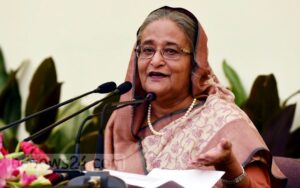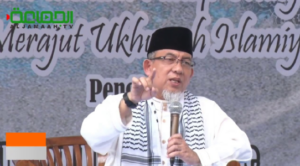By Michael Safi in Delhi ( theguardian.com)
India’s supreme court may declare unconstitutional a practice that allows men to end marriages with the triple utterance of the word talaq.
Talaq, talaq, talaq: for more than a decade Arshiya feared the words like some dark incantation.
When she caught her husband talking online to other women, he would snarl at her: “If you interfere too much in my life, I’ll give you talaq.”
Also Read: Be Careful of the Trap of Deploying Peacekeeping Forces to Gaza
Another time she found intimate messages from a lover on his phone. Again, Arshiya says he shouted her down: “You doubt me? I’ll give you talaq.”
Frowned upon even by hardline Muslims, and banned in Pakistan, Bangladesh and across the Islamic world, the practice of talaq-ul-bidat – or “triple talaq” – persists in India, home to the world’s third-largest Muslim population.
It grants men the power to dissolve a marriage with a single word, “talaq”, said three times. Increasingly, the word is emailed or texted.
“It is a totally unilateral, one-sided, instant form of divorce, and uttered by men,” says Zakia Soman, an activist from Gujarat state. “The wife need not be present. She need not even be aware.”
Also Read: The Forty-Four-Days of Glory: Azerbaijan’s Struggle for Justice and Peace
Now India’s supreme court looks set to declare triple talaq, and another law forcing women who re-marry their husbands to first sleep with another man, unconstitutional. Banning the custom would free up to 90 million Muslim women in the country from a potential trapdoor divorce.
But Soman, whose Muslim reform group is fighting the case, wants something even more radical: “To tell the ulema [Muslim scholars], and the whole world, that ordinary Muslim women are fully capable of reading the Qur’an, understanding the Qur’an, interpreting the Qur’an – and obtaining justice for themselves.”
Arshiya’s husband did finally try to divorce her. She never even heard him say the words. “One day, suddenly, he told me he had given me talaq. He said, ‘I gave it to you four days earlier’.”
“I literally begged him,” she says. “I went down on my knees and said, if you want to have affairs, go, just don’t throw me out of the house. Where will I go with my child? I don’t have a steady job – what will I do?”
Also Read: Palestine Solidarity Month: A Collective Movement for Al-Aqsa and Palestine’s Freedom
Because her husband chose an Islamic divorce, rather than one under India’s more progressive secular law, Arshiya was also denied the third of his salary she would be legally due in alimony.
The 45-year-old, now working up to 16 hours a day as a teacher in south-west Delhi, is trying to have her husband’s divorce overturned, and pursuing him for the meagre compensation Indian courts have carved out for triple talaq victims.
She doesn’t want to get back together. The legal action is about making a point. “I want justice,” she says. “The question now isn’t money. I was not his servant. I was not his slave, who he kept in the house for 12 years and then threw out.”
In Fatima’s case the custom, which scholars trace back to the Qur’an, had a modern twist: she was informed of her divorce by text message.
Also Read: Hassan al-Turabi: A Controversial Thinker from Sudan
“He just messaged, talaq, talaq talaq. And then he switched off his phone,” recalls Mohd, her brother-in-law. Fatima said she was too depressed to speak.
Her husband was already married when they wed in February – a fact Fatima discovered two weeks after the nuptials. After he sent the divorce text message, and disappeared, he had a friend visit Mohd.
“He informed us that he had given [Fatima] talaq and left. And if we tried to find him he would tell the police we tried to kidnap him,” he says.
“We don’t belong to a middle-class family, and he’s financially sound, so for us it was a situation of fear.
Also Read: Who Exactly is the RSF Group Shaking Sudan?
The friend offered to cut a deal. “Pay some money to us and wind it off,” Mohd says.
“Obviously for us there was no option left. We took 3 lakhs (£3680) as a compensation, and promised we won’t do any defamation of them, or contact their families and friends.”
Because he fears that speaking to the Guardian might breach the deal, he asked that neither his, nor his sister-in-law’s last names be published.
Soman says cases such as these are unremarkable. A national study released last year by her group, the Bharatiya Muslim Mahila Andolan (BMMA), found roughly 1 in 11 Muslim women were survivors of triple talaq – the vast majority receiving no compensation.
Also Read: The Two-State Solution (Palestine–Israel) in Historical Perspective
Bookish and slight, Soman, 51, speaks in long, elegant paragraphs, that rain criticism on India’s clerics like bombs. “The reason triple talaq has persisted,” she begins, “is first and foremost because Indian Muslims are poor, socially backward, economically backward and educationally backward.
“As a result, there is a stranglehold by patriarchal elements posing as religious leaders. And they have spread rampant misinformation and misunderstanding.”
Also Read: Enchanted by K-Dramas, Dragged into Slander: Time for Muslims to Rise!
Which sharia? Whose sharia?”
Under British colonial rule, India’s various religious groups were permitted to organise their own personal affairs, including marriage and divorce. To this day, Indian law says Muslims can be being governed by the shariah, or Islamic jurisprudence.
“But the law doesn’t state the minimum age of marriage, the procedure for divorce, or polygamy, or the guardianship of children,” Soman says. “The law just says they’ll be governed by sharia. But which sharia? Whose sharia?”
Male-dominated groups such as the All-India Muslim Personal Law Board (AIMPLB) have filled the gap, pushing an interpretation of the Qur’an of which Soman is scathing.
Also Read: Creating Opportunity and Avoiding Misery; Lesson Learn on Waste Recycling Issue
“I doubt they’re capable of understanding the Qur’anic values of justice, kindness and wisdom,” she says.
The BMMA’s challenge to Muslim divorce laws, and to India’s entire Muslim establishment, is nothing less than this: that she, and any Muslim woman, has as much right to interpret the Qur’an as any cleric or scholar.
“Triple talaq is totally un-Qur’anic,” she says. “The Qur’an nowhere has any mention of it. A Muslim marriage is a social contract and the right to divorce is given to both husband and wife.
The women’s group has already had one major victory this year: winning a case to overturn a ban on women entering the inner sanctum of the 15th century Haji Ali shrine in Mumbai.
Also Read: Between the Treaty of Hudaybiyyah and Ceasefire in Gaza
Now triple talaq is in its sights, after the Indian supreme court announced last year it would measure a raft of Muslim marriage laws against the Indian constitution’s guarantee of gender equality.
The AIMPLB, the peak body for Indian Muslims, is bitterly opposed to any change. Its affidavit, filed last month, argued that absent the right of instant divorce, a husband “may resort to illegal, criminal ways of murdering or burning [his wife] alive”.
It has also raised less risible fears of India’s Muslims – still marginalised, 70 years after Partition – being subsumed under a wave of Hindu nationalism, which has swelled in the past decades, and is surging under prime minister Narendra Modi.
Also Read: Peace Cannot Be Achieved Without a Palestinian State
The majority will swallow you up
Indeed, one of the reasons triple talaq has remained legal so long is the fear, propounded by Muslim community leaders, that if the government is allowed to tamper with Islamic personal laws, it might one day scrap them completely, “and the majority will swallow you up”, says Seema Mustafa, a Muslim journalist and author.
Sure enough, as the supreme court has examined triple talaq these past weeks, members of the ruling Hindu nationalist party have raised the prospect of replacing all religious personal laws with a uniform civil code, which some Muslims fear might be Hindu-inflected, and ride roughshod over their beliefs.
Soman and the BMMA know this sensitivities well. The group was formed in the embers of the 2002 Gujarat riots, which left 1,000 people, mostly Muslims, dead. They are careful to argue that the alternative to instant divorce should still be Islamic in character: requiring two “talaqs”, delivered three months apart, and only after negotiation between the couple and their families.
Soman is adamant: “The Qu’ran insists that if and when divorce happens it has to be just and fair to both parties.”
It remains to be seen if the supreme court is on her side. But is God? “Of course,” she says, peering hard over her glasses. “God is on the side of those who work hard, those who are truthful, those who are just, and those who are fair.” (P007/R07)
Mi’raj Islamic News Agency (MINA)


































 Mina Indonesia
Mina Indonesia Mina Arabic
Mina Arabic